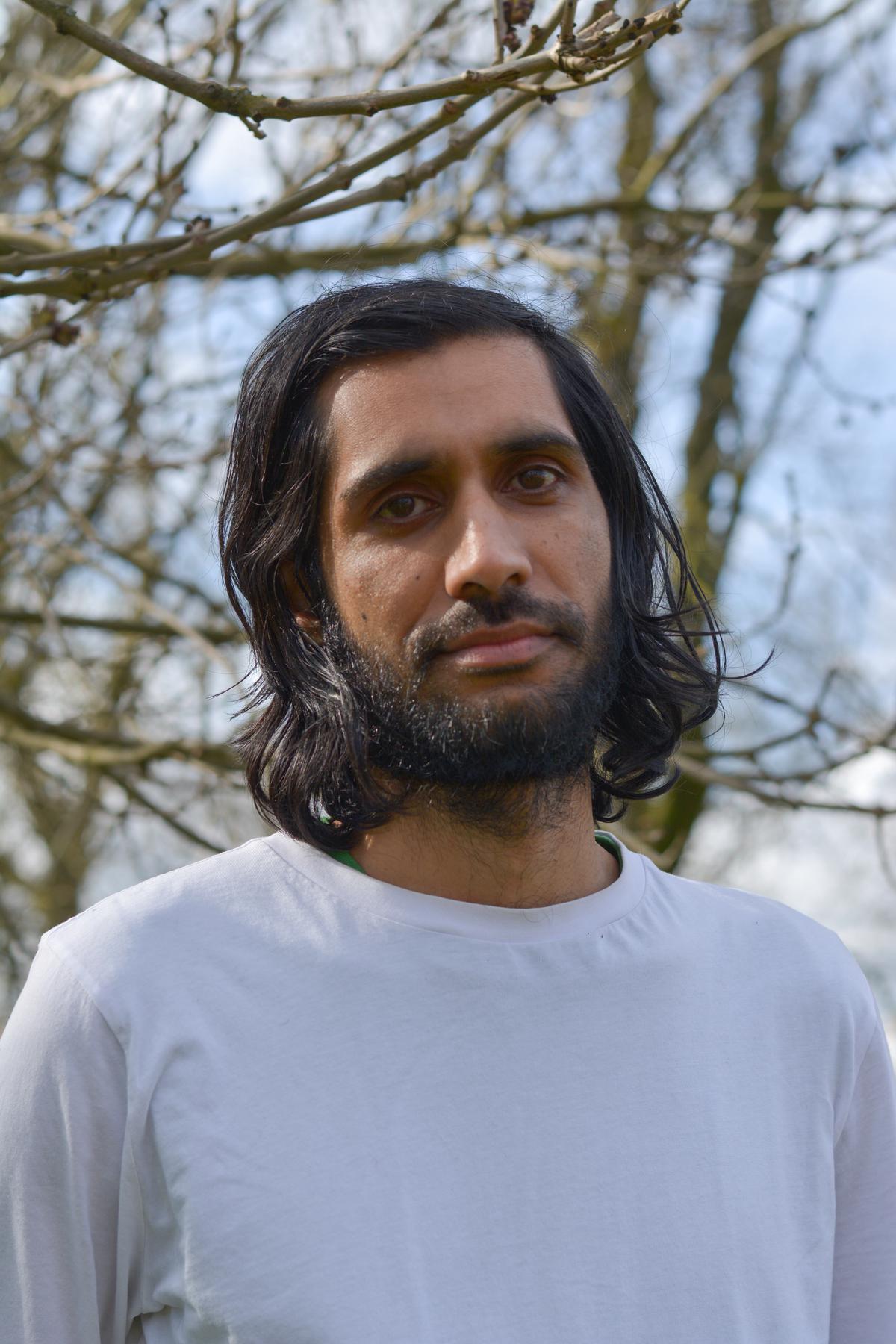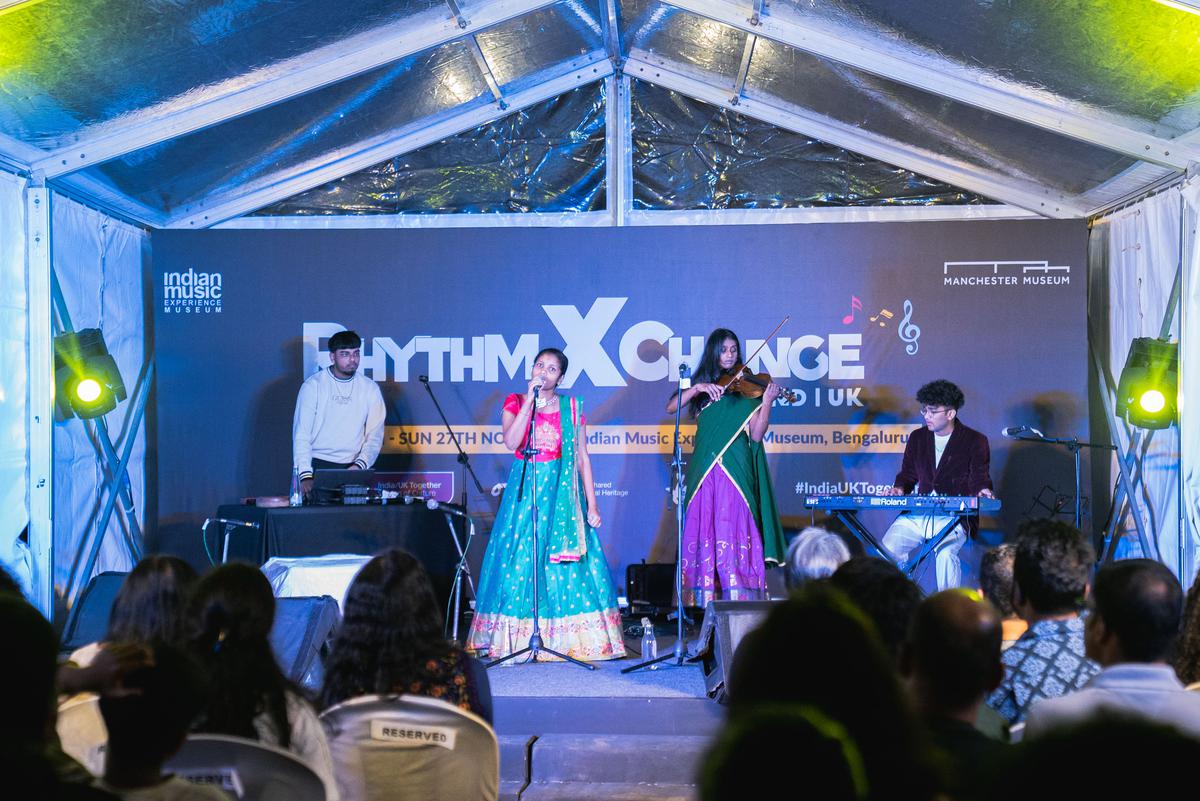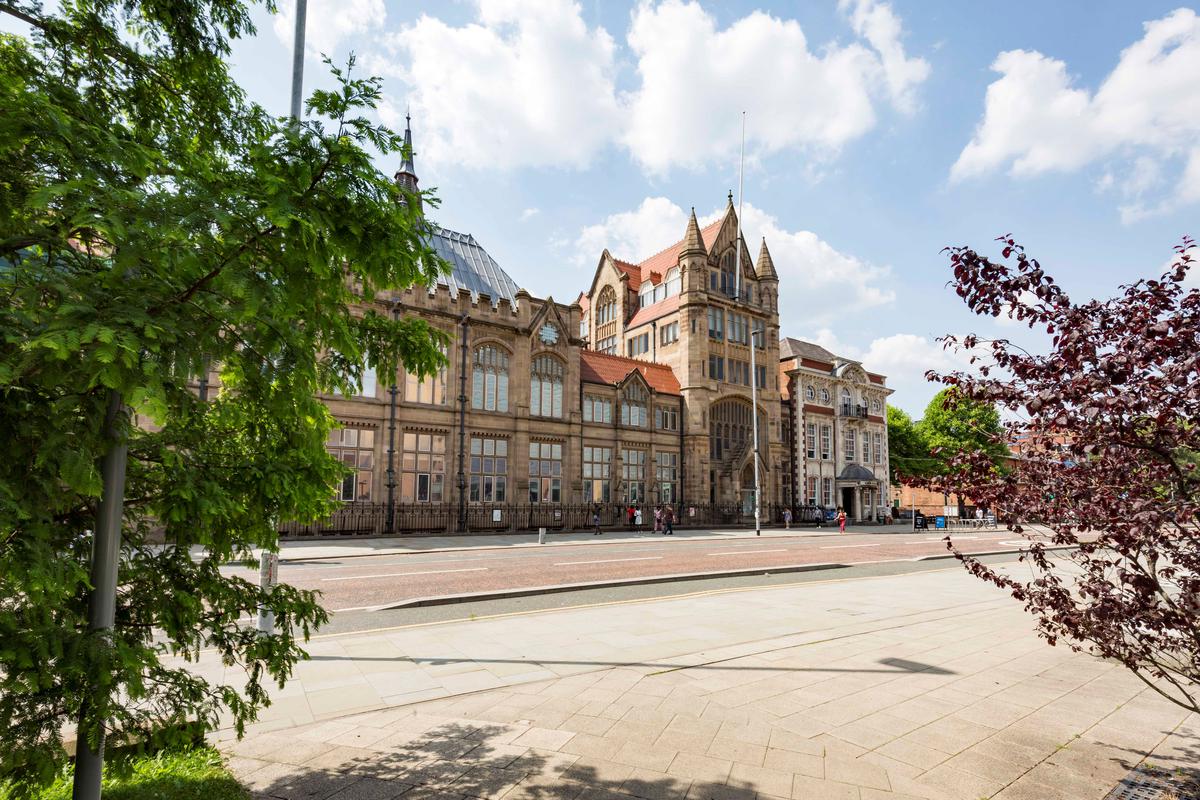[ad_1]
History is recounted from the victor’s point of view, with most museums pandering to that narrative by housing a collection of objects bound by a common thread in time. What if, however, there was a museum to showcase the true life histories of people, warts and all?
The Manchester Museum in the United Kingdom aims to do just that with their South Asia Gallery Collective, which celebrates of the contributions of the South Asian community in the UK, as part of a landmark partnership with British Museum. Music is among the many chapters the Collective delves into and with regard to this, two artistes from the UK, Aziz Ibrahim Aziz and Balraj Samrai were recently in India for the RhythmXchange project, collaborating with musicians at the Indian Musical Experience in Bengaluru.
Aziz Ibrahim Aziz
| Photo Credit:
Special Arrangement
“In England, I’m labelled British, Pakistani, Muslim by people who want to categorise me,” says Aziz Ibrahim Aziz, a singer, guitarist, composer and audio designer. “I’m a hybrid living two identities — the Punjabi life I have at home which I’m very fond of, and the other of working and socialising in Western society.” Aziz is also a co-curator for the music and dance anthology of the the South Asia Gallery.
Elaborating on how the Manchester Museum has been set up, Aziz says, “We are an entourage of co-curators from different walks of life — musicians, artists, scientists and teachers — who import our perspectives to the museum. Most museums usually begin and end with objects and displays, which can leave visitors feeling dissatisfied. When you present personal stories and perspectives, that puts a touch of humanity into the exhibits.”

Balraj Samrai
| Photo Credit:
Special Arrangement
Movement and Empire, and Lived Environments are two of the Museum’s many themes, which includes sections on Innovation and Language, Sound, Music and Dance, and British Asian. “Whether via occupation, migration, colonialism, slavery or indentureship, the diaspora is very wide, with interesting and sometimes, traumatic stories within that movement,” says Balraj Samrai, who is a music producer, DJ and teacher.
Having struggled with notions of identity and acceptance themselves, both Aziz and Balraj understand the uphill struggle faced by non-Caucasian artistes.
As a rock musician who cut his teeth in white society, Aziz says he faced more brickbats than bouquets, literally and figuratively. “I just wanted to be treated equally and at that time, there was no guidance or exposure. Today, we are happy to share our journey with musicians willing to step out into the world.”
While resilience is required to face public abuse and adversity makes you stronger, what aids the creative process is respect, adds Balraj. “Though we’re both Punjabis at the end of the day, our individual stories and instruments are different. We come together through a passion for music and respect for art.”

One of the RhythmXchange events in Bengaluru
| Photo Credit:
Special Arrangement
Music is a by-product of this amalgamation from different countries and cultures. “As musicians and artistes we enjoy access to various forms, genres and influences; the Museum showcases how music has played a part in shaping the culture of the United Kingdom. The aim is to make it accessible, inclusive, and inviting for all who are interested in exploring their roots and identity,” says Aziz.
It is also about breaking barriers, says Balraj. The musicians who are part of their interaction with the Indian Musical Experience in Bengaluru included a classically-trained violinist, a DJ, an electronic music producer and a vocalist. There is a Rock keyboardist too. “We all come from different places, but there is common ground; we probably have more in common than what meets the eye,” says Balraj.
Mixing contemporary with tradition as well as different genres from various countries has been done before, they agree. “There’s always a revolution in music and what is happening here is creating some new pieces of music with each other’s passion,” says Aziz, while Balraj adds “We look at sources of self-expression in this two-way exchange of ideas.”
The Manchester Museum hopes to go digital at some point, but apart from being a collaboration of mentors and mentees, the project envisions the Gallery as a performance space as well, open for debates, presentations, film screenings and the like.
The Manchester Museum is scheduled to re-open on February 18, 2023.

Manchester Museum
| Photo Credit:
Special Arrangement
[ad_2]
Source link


